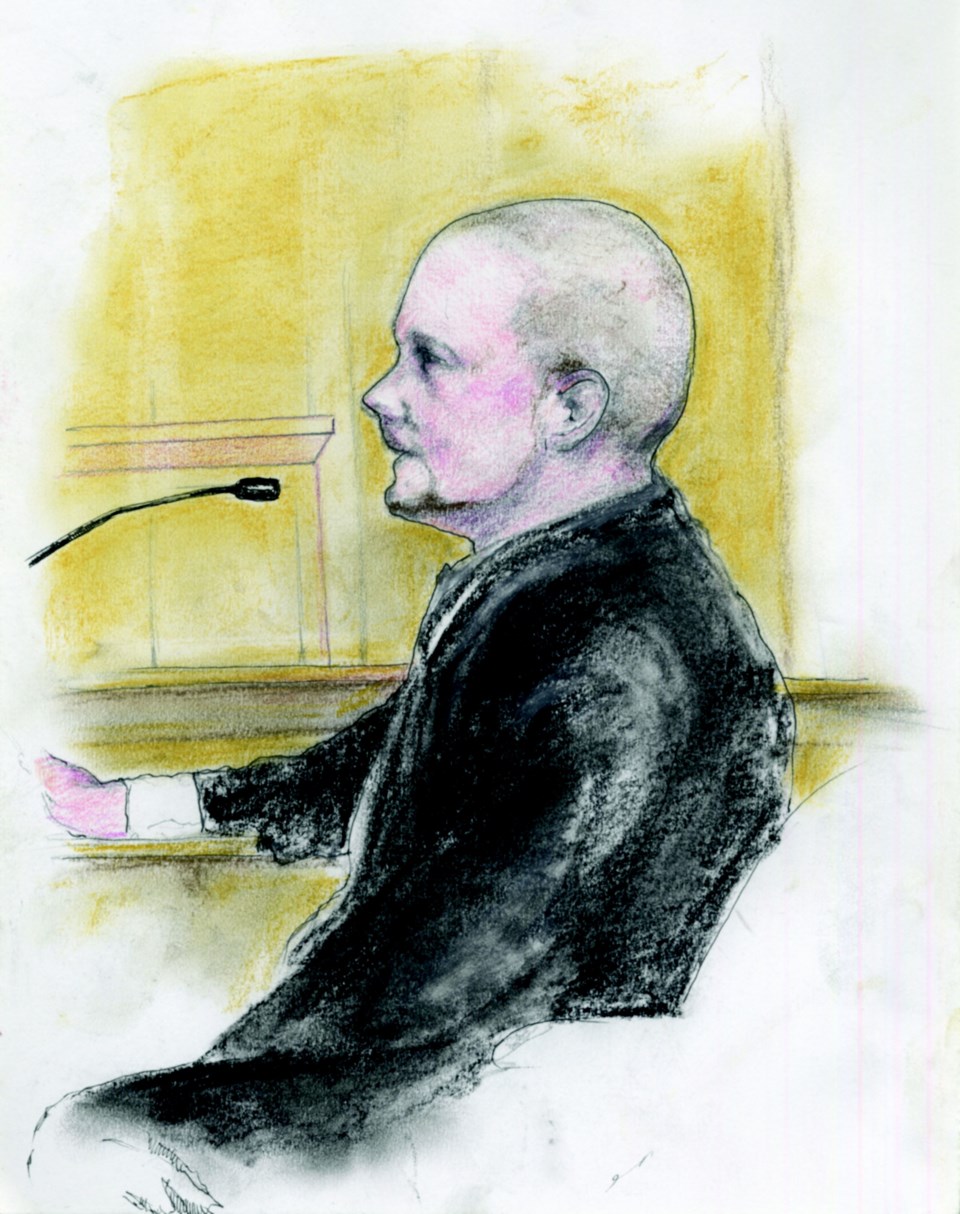The jury began deliberations midday Wednesday on whether Cody Allan Legebokoff is guilty of first degree murder in the deaths of three women and a teenage girl as B.C. Supreme Court Justice Glen Parrett wrapped up his final instructions.
Legebokoff, 24, is accused of first degree murder in the deaths of Jill Stacey Stuchenko, Cynthia Frances Maas, both 35, Natasha Lynn Montgomery, 23, and Loren Donn Leslie, 15.
The jury, which was reduced to 12 from 14 members before they were sent away, also has the options of second degree murder, manslaughter and not guilty in each of the four cases.
They must be unanimous in their verdicts but can reach their decisions by different routes, Parrett told the jury.
Legebokoff is guilty of first degree murder if the jury finds he carried out the murders either in a planned and deliberate manner or during the commission of or attempt to sexually assault and Crown prosecution is arguing the accused did both.
And if the jury believes Legebokoff's story that persons he identified only as X, Y and Z carried out the murders of the three women, Crown argues he is still guilty of first degree murder because he was a party to the crimes by providing the murder weapons.
As for Leslie, Legebokoff admitted he struck the girl with a pipe wrench but only after she went "psycho," while his lawyer, Jim Heller, emphasized her mental health problems in urging the jury to find Legebokoff guilty of second degree murder on all four counts.
Crown prosecutor Joseph Temple argued in turn that blood found at the scene where Leslie's body was found Nov. 27, 2010 suggests Legebokoff chased her down and submitted he did so after she refused to have sex with him and attempted to escape from his pickup truck when they had stopped in an isolated spot north of Vanderhoof on Highway 27.
Legebokoff was arrested a short time later when a Fort St. James RCMP officer saw him speeding from the scene and then found blood on the accused and in the truck, as well as a backpack and cellphone belonging to Leslie.
Parrett said jury members might also have consider the alleged levels of Legebokoff's intoxication when deciding beyond reasonable doubt if he had the intent required for murder. Legebokoff testified he had consumed crack cocaine at the time of each killing.
"As a result of consuming alcohol or drugs a person may not have the required intent," Parrett said. "However, the mere fact that a person's mind is affected by alcohol or drugs to that they lose inhibitions or act in a way in which they would not have done had they been sober is no excuse if the required intent is proven."
Parrett suggested jury members start by deciding if they believe Legebokoff's story that X, Y and Z committed the murders and work from there.
He also suggested they establish a timeline for each of the murders. Stuchenko's body was found Oct. 26, 2009 partially buried in a gravel pit off Foothills Boulevard near Otway Road and Maas' body was found slightly less than a year later, on Oct. 9, 2010 in L.C. Gunn Park. Montgomery's body has never been found but numerous samples of her blood were found in Legebkoff's apartment and on an ax found in the home.
Since the trial began on June 2, the jury, which now consists of eight men and four women, heard testimony from 93 witnesses on behalf of the Crown, 19 of them expert witnesses, and from Legebokoff himself.



